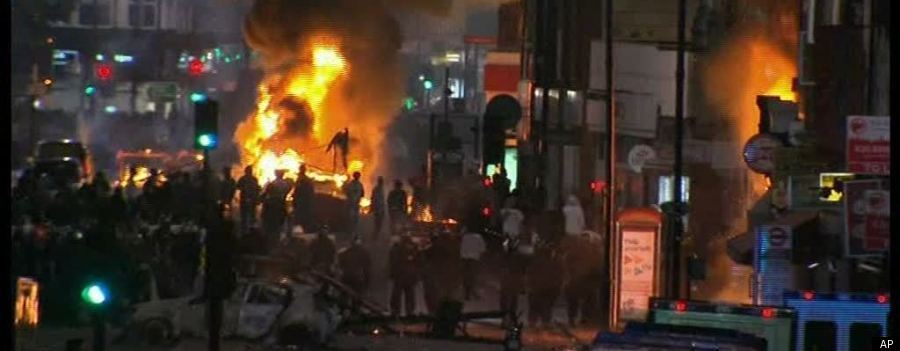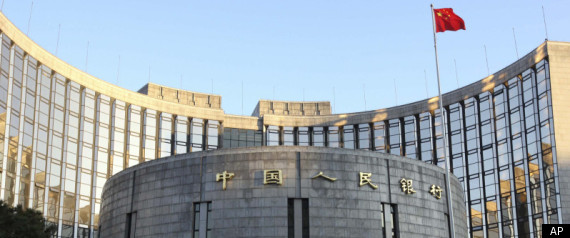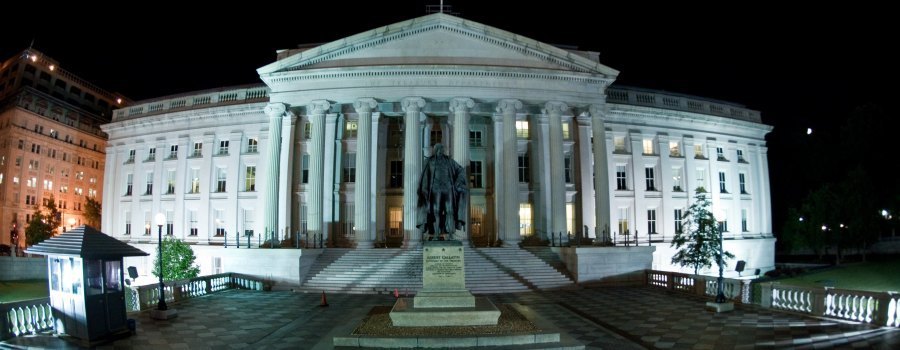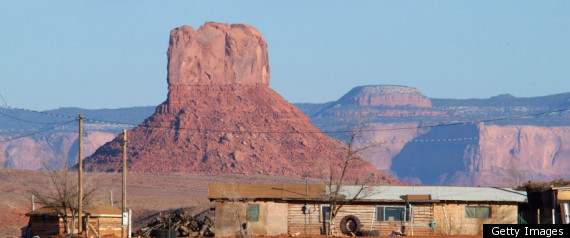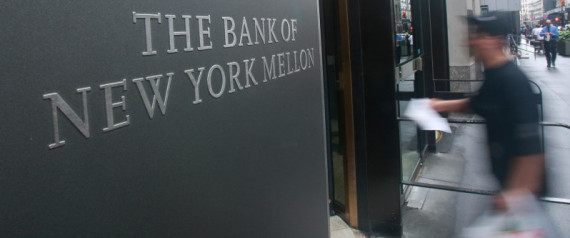
After a
mildly encouraging employment report, Washington's politics might manage to derail the U.S. economy anyway. Compromising to narrowly avoid a debt ceiling puncture and to cut deficits by $2 trillion might not have been enough. Rating agency Standard and Poor's has downgraded the U.S. debt rating one notch to AA+. Is this move by S&P bold and prescient or insane and misguided?
S&P made the announcement late Friday. It applies to the U.S. long-term sovereign debt rating. The agency also leaves intact the debt rating's negative outlook. Its
statement says:
We lowered our long-term rating on the U.S. because we believe that the prolonged controversy over raising the statutory debt ceiling and the related fiscal policy debate indicate that further near-term progress containing the growth in public spending, especially on entitlements, or on reaching an agreement on raising revenues is less likely than we previously assumed and will remain a contentious and fitful process. We also believe that the fiscal consolidation plan that Congress and the Administration agreed to this week falls short of the amount that we believe is necessary to stabilize the general government debt burden by the middle of the decade.
Our lowering of the rating was prompted by our view on the rising public debt burden and our perception of greater policymaking uncertainty, consistent with our criteria. Nevertheless, we view the U.S. federal government's other economic, external, and monetary credit attributes, which form the basis for the sovereign rating, as broadly unchanged.
In short, S&P sees the political risk as too great to sustain the U.S.'s AAA-rating.
Could Have Seen It Coming?
On some level, this shouldn't be completely shocking. The U.S. debt-to-GDP ratio is at similar level to what Japan's was at in 2001 when it was downgraded from AAA to AA+ by S&P. I
prepared this chart back in May to show the relationship (red line represents downgrade point for Japan, light blue are IMF projections):
So the U.S. is clearly on the same trajectory. Perhaps a downgrade shouldn't surprise anyone?
And Yet, S&P Should Be Surprised Itself
But I asked S&P about the U.S. back in May, comparing it to 2001 Japan. One of their analysts provided numerous reasons for why the U.S. debt today shouldn't be judged as harshly as Japan's debt was then. They included:
- The U.S. has better fiscal indicators, both on the stocks and on the flows.
- The dollar remains the key international currency, while the yen is a distant third.
- U.S. prices are more stable, while Japan flirts with deflation.
- The U.S. growth prospects are better.
- Japan has particularly troubling demographics, as its population is aging and skews towards the elderly.
Nothing on this list has changed since May, but S&P has become more gravely concerned with U.S. politics. Indeed, Congress engaged in an extremely dangerous and stupid game of chicken. But ultimately, they acted in the nick of time. Whenever you've got gridlock in Congress, making big changes can be difficult. But eventually Congress groans and does what it has to do, with a result that usually makes neither side very happy. For the rating agency, this status quo must not be enough.
Why Is This Time Different?
S&P was not happy with the $2.2 trillion minimum debt reduction plan. That's understandable. A bigger deal would certainly have been preferable from a fiscal soundness standpoint.
But does the agency really estimate that the deal is is so dangerously small that there's a realistic chance that the U.S. could now default at some point in the future? In particular, does U.S. debt really look significantly riskier now than it did in, say, April?
The bond market certainly doesn't think so. Treasury yields are near all-time lows, despite all that political nonsense. And remember, the interest the U.S. pays on its debt is far, far smaller than its tax revenues. If the Treasury prioritizes interest payments, then there's no conceivable way the U.S. could default.
I
defended S&P's initial decision to put the U.S. rating on negative watch back in May when politics were becoming poisonous. But to actually downgrade the U.S. after Washington managed to avoid its self-created crisis is another story. S&P should have acted like the other agencies and affirmed the U.S. rating, but kept it on negative watch until more deficit reduction plans were put in place over the next couple of years, as I
explain here.
In fact, this might not turn out well for S&P. The firm might think it's acting boldly or proactively. Instead, the market may question S&P's reasoning skills. The rating agency is acting here on an assumption not shared by its peers at Moody's and Fitch: that U.S. politics are so screwed up that they could render the nation unable to live up to its debt obligations. That's despite pretty much everyone agreeing that the nation will be financially able to pay for its debt in the short-, medium-, and long-term.
Who to Blame
S&P takes no position on which party is at fault here. It might have been easy to blame Republicans due to their inflexibility on taxes. Any sort of absolute pledge like "no new taxes," creates a politically impossible situation when compromise is necessary, as I
wrote earlier this week. So in that sense, S&P is right to be concerned.
And yet, as bad an idea as this pledge might be, the U.S. managed to raise the debt ceiling and avoid default. If you assume that Congress will remain divided after the 2012 elections and that Republicans will renew their pledge, then we could have more of these absurd near-default experiences. That's what worries the rating agency.
But S&P must be counting on more than just Republicans acting insanely enough to cause default: Democrats would have to act just as irresponsibly. After all, spending and entitlement cuts alone can easily allow the U.S. to avoid default. The agency makes this point, saying that the nation needs entitlement cuts and/or more tax revenue. S&P must assume that Democrats, like Republicans, could reach a limit of how much they'll concede and just let the U.S. economy burn on mere principle.
Origin
Source: the Atlantic  HIROSHIMA, Japan - The Japanese city of Hiroshima on Saturday marked the 66th anniversary of the bombing, as the nation fights a different kind of disaster from atomic technology -- a nuclear plant in a meltdown crisis after being hit by a tsunami.
HIROSHIMA, Japan - The Japanese city of Hiroshima on Saturday marked the 66th anniversary of the bombing, as the nation fights a different kind of disaster from atomic technology -- a nuclear plant in a meltdown crisis after being hit by a tsunami.